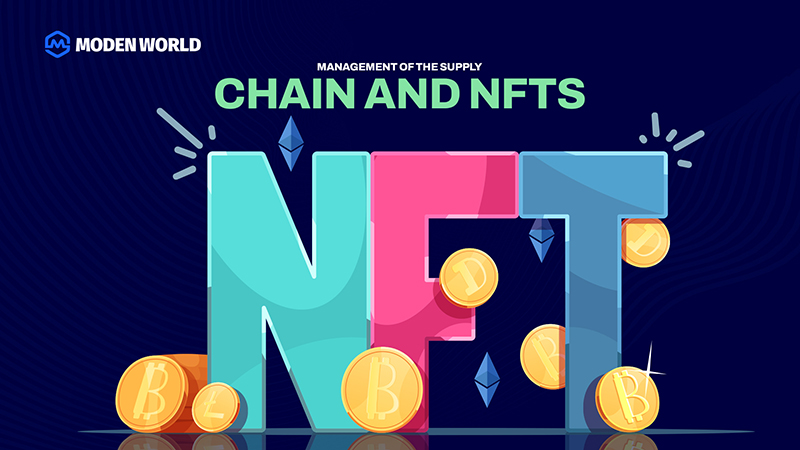
The goal of supply chain management (SCM) is to deliver a finished product from the point of origin to the final consumer. Optimizing systems and processes, from material handling and distribution to information management, is no simple undertaking in any industry. NFTs may help to alleviate some of the problems in the complicated supply chain industry. First, what are the present difficulties?
1. Product Specifications
It can be challenging to track the origin of the goods we buy in our increasingly globalized and connected society. Any industry's supply chain is intricate and international, adding to the difficulty of the authentication procedure. Solutions already in place, like QR codes, which have decreased the prevalence of counterfeit goods, are nonetheless vulnerable to manipulation. Through QR codes, unwary customers run the risk of disclosing important information and incurring immeasurable losses.
2. Bottlenecks
Supply chain management is crucial for controlling costs and guaranteeing on-time product delivery, as any business owner is aware. But improving supply chain efficiency is frequently easier said than done. Efficiency is impacted by a number of variables, including the quantity of suppliers, their locations, and the nature of the products being delivered. Furthermore, supply chain disruptions frequently result in major delays and expense increases.
3. Trust costs
In each business transaction, trust is essential, and in a supply chain with many moving components, the price of trust is extremely high. The majority of operations lack transparency, and eventually users rely on governing bodies to determine quality. The present scope of the supply chain sector has to take the growing customer need for openness into account.
NFTs are redefining the supply chain.
The following ways that non-fungible tokens (NFTs) can change the supply chain sector:
1. Asset management
NFTs can be used in supply chain management to track assets securely and effectively by utilizing the underlying blockchain. Each item in the supply chain can have a special identity thanks to NFTs, which can be used to follow the asset's progress. This will make it possible to track assets more accurately and efficiently, which will improve the overall effectiveness and efficiency of the supply chain.
2. Historic evidence
Assets that cannot be exchanged are NFTs. They are therefore suitable for tracing the provenance and ownership of physical products. An NFT might, for instance, represent a shipment of coffee beans, with a different token for each package. Building a complete picture of where the beans have gone and who has touched them would be achievable by following the flow of these tokens through the supply chain.
3. Current information
Through NFTs and smart contracts, the rising consumer need for transparency can be satisfied. Anyone with an internet-enabled phone can review the history of a product and confirm current details.
Conclusion
The field of supply chain management (SCM) is one in which NFTs can prosper. With Walmart's blockchain project tracking a Chinese pork supply chain succeeding, it won't be long before more companies start adopting NFTs and smart contracts to run their operations.

👉Start Cloud Mining with us: MODENWORLD
👉Follow our official Twitter: @modenworld
👉Join our community on Telegram: @ModenWorld_group